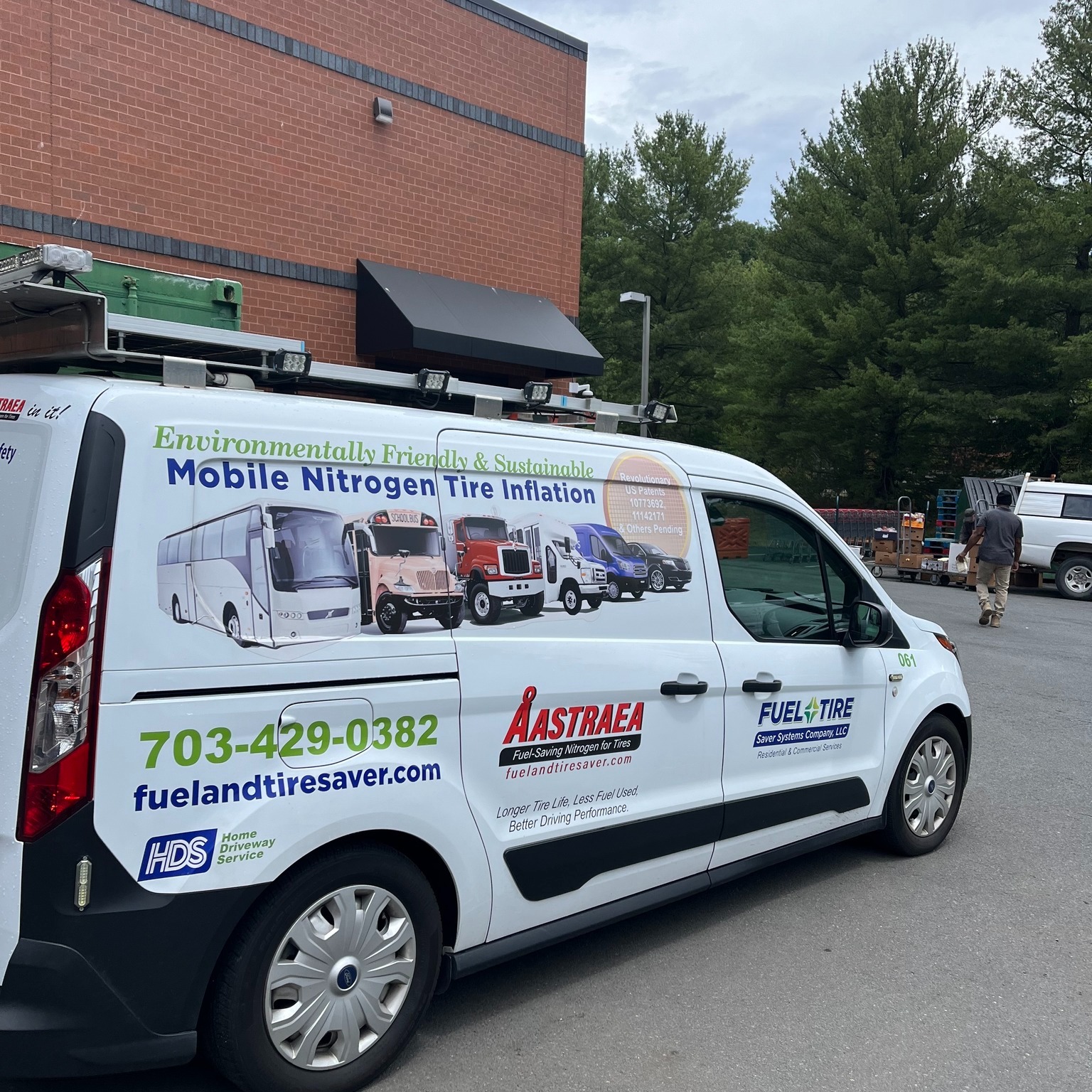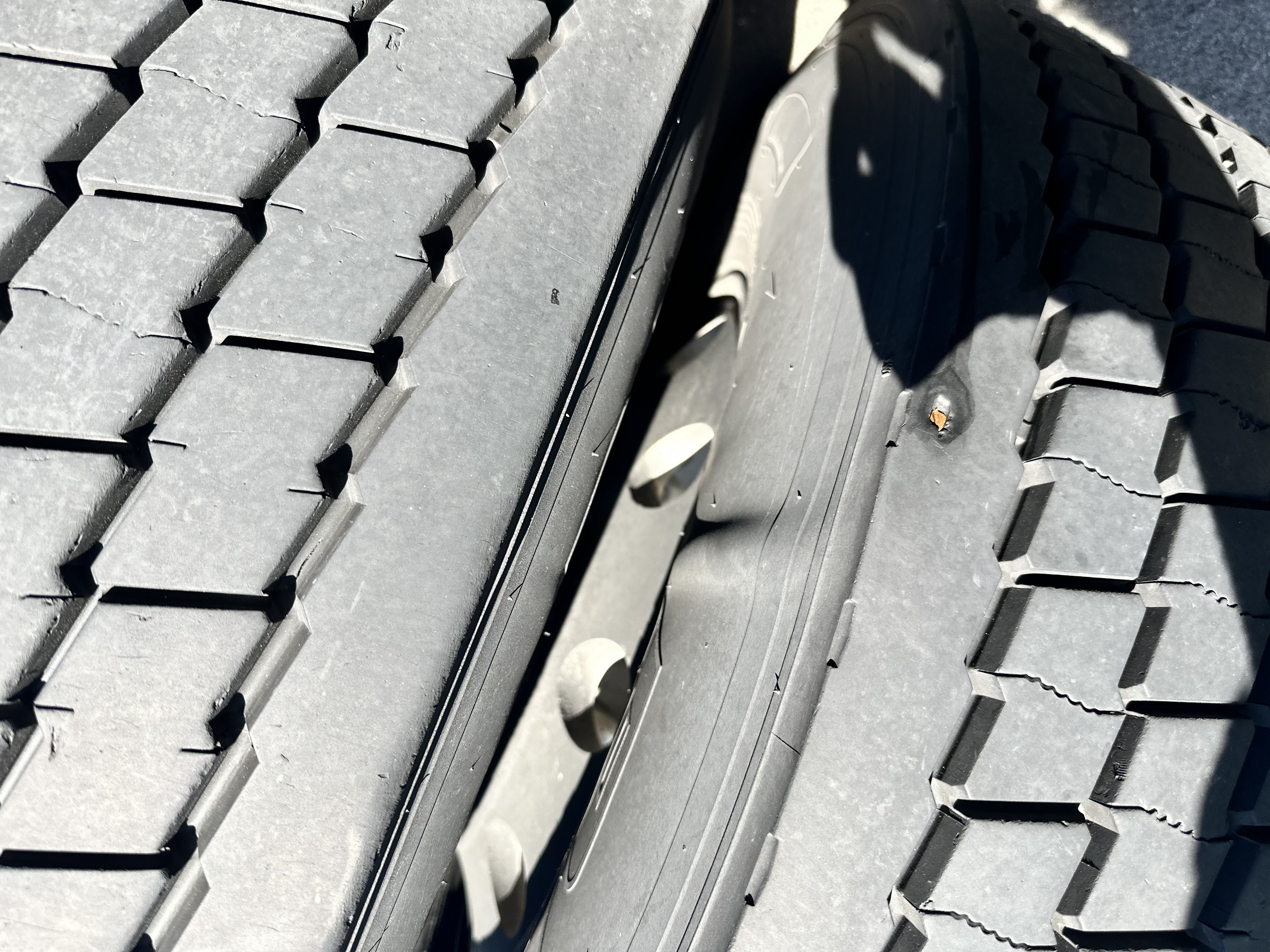In the competitive world of fleet management, finding ways to reduce operational costs while enhancing vehicle performance is paramount. One often overlooked yet highly effective method is the use of nitrogen inflation for tires. Unlike traditional compressed air, nitrogen’s unique properties offer a multitude of advantages that can lead to significant savings for fleet operators.
The primary benefit of nitrogen inflation is its ability to maintain tire pressure more consistently. Nitrogen molecules are larger and less permeable than oxygen molecules, which means they escape from the tire at a slower rate. This results in tires that stay properly inflated for longer periods, reducing the need for frequent pressure checks and adjustments.
Properly inflated tires offer *superior fuel efficiency*. Studies have shown that under-inflated tires can decrease fuel efficiency by up to 10%. By maintaining optimal tire pressure, fleet operators can achieve substantial savings on fuel costs over time. Additionally, nitrogen-inflated tires experience *less wear and tear*, extending the lifespan of the tires and reducing replacement costs.
Moreover, nitrogen inflation enhances safety by improving vehicle handling and reducing the risk of tire blowouts. This is especially crucial for large fleet vehicles that carry heavy loads and travel long distances. The environmental benefits are also noteworthy. By extending tire life and improving fuel efficiency, nitrogen inflation helps reduce the carbon footprint of fleet operations.
Are you ready to experience these benefits for your fleet? Request Fleet Pricing, contact our office at (703) 429-0382, or email Mike.LoPresti@fuelandtiresaver.com to get started today.
Table of Contents
ToggleCost Savings Through Improved Fuel Efficiency

One of the most compelling reasons fleet operators can achieve substantial savings by using nitrogen inflation is the improvement in fuel efficiency. Fuel costs represent a significant portion of a fleet’s operational expenses, and even marginal improvements in fuel efficiency can lead to considerable financial savings.
Nitrogen-inflated tires maintain optimal pressure for more extended periods, which directly impacts fuel efficiency. When tires are under-inflated, they create more rolling resistance as they deform more while in contact with the road. This increased resistance requires more energy, and therefore more fuel, to move the vehicle forward. According to various studies, under-inflated tires can reduce fuel efficiency by up to 10% or more.
By using nitrogen inflation, fleet operators can ensure that their tires are consistently at the correct pressure, reducing rolling resistance and improving fuel efficiency. Over the long haul, this can translate into *thousands of dollars* in fuel savings, especially for large fleets that cover extensive distances regularly.
Additionally, nitrogen’s stability under temperature fluctuations means that tire pressure remains more constant in varying weather conditions. This stability further enhances fuel efficiency by maintaining the optimal tire shape and contact with the road, reducing the energy required to move the vehicle.
Implementing nitrogen inflation is a proactive step towards optimizing fleet performance and reducing operational costs. With fuel prices fluctuating, any strategy that can curb fuel consumption without compromising on performance is a valuable asset for fleet operators.
Extended Tire Life and Reduced Maintenance Costs

Fleet operators can achieve substantial savings by using nitrogen inflation not only through improved fuel efficiency but also by extending tire life and reducing maintenance costs. Tires are a considerable investment for any fleet, and maximizing their lifespan is crucial for cost-effective operations.
One of the main advantages of nitrogen inflation is its ability to minimize the oxidation process inside the tire. Traditional air contains about 21% oxygen, which can permeate the tire walls and cause oxidation of the rubber, leading to premature aging and deterioration. Nitrogen, being a larger molecule, permeates through the tire walls much more slowly, significantly reducing the oxidation process. This results in *longer-lasting tires*.
Moreover, nitrogen inflation helps maintain consistent tire pressure, which is critical for even tire wear. Under-inflated or over-inflated tires wear unevenly, often necessitating premature replacements. By ensuring that tires remain at the optimal pressure, nitrogen inflation promotes uniform tread wear, thereby extending the usable life of each tire.
Consistent tire pressure also reduces the likelihood of tire failures, blowouts, and other maintenance issues. This not only saves on direct costs related to tire replacements but also minimizes downtime for repairs, which can be a hidden cost for fleet operations. Reduced maintenance needs translate into less frequent service intervals, allowing fleet operators to allocate resources more efficiently.
In addition, nitrogen-inflated tires are less susceptible to dramatic pressure changes due to temperature fluctuations. This stability means fewer pressure checks and adjustments are needed, further reducing maintenance labor and costs.
Overall, by extending tire life and reducing maintenance costs, nitrogen inflation offers a substantial financial benefit to fleet operators, making it a smart investment in the long-term health and efficiency of their fleets.
Enhanced Safety for Fleet Vehicles
When it comes to fleet management, safety is paramount. Fleet operators can achieve substantial savings by using nitrogen inflation, which significantly enhances the safety of fleet vehicles. Properly inflated tires play a crucial role in vehicle safety, and nitrogen inflation offers several advantages that contribute to a safer driving experience.
One of the key benefits of nitrogen inflation is its ability to maintain tire pressure more consistently over time compared to traditional air. Proper tire pressure is essential for optimal handling, braking, and overall vehicle stability. Under-inflated tires can increase stopping distances and reduce the vehicle’s ability to grip the road, particularly in adverse weather conditions. By using nitrogen, fleet operators can ensure that their tires remain at the correct pressure, thereby enhancing the safety of their vehicles.
Nitrogen is also less affected by temperature fluctuations compared to traditional air. This stability is particularly important for fleet vehicles that operate in varying climate conditions. When tires are exposed to extreme temperatures, the air inside can expand or contract, leading to pressure variations. Nitrogen’s resistance to temperature changes helps maintain consistent tire pressure, reducing the risk of blowouts and other tire-related incidents.
Additionally, nitrogen inflation minimizes the presence of moisture inside the tires. Moisture can cause corrosion of the steel belts and other internal components, compromising the structural integrity of the tire. By reducing moisture content, nitrogen inflation helps preserve the tire’s structural integrity, reducing the likelihood of sudden tire failures and blowouts that can lead to accidents.
Moreover, properly inflated tires reduce the strain on the vehicle’s suspension and braking systems, contributing to overall vehicle performance and safety. Consistent tire pressure ensures that the tires wear evenly, providing better traction and control, which is critical for the safe operation of fleet vehicles.
In conclusion, nitrogen inflation offers fleet operators a reliable way to enhance the safety of their vehicles. By maintaining proper tire pressure, reducing the risk of blowouts, and preserving the structural integrity of the tires, nitrogen inflation helps create a safer driving environment for fleet drivers and other road users.
Environmental Benefits of Nitrogen Inflation

Nitrogen inflation not only benefits fleet operators in terms of cost savings and safety, but it also offers significant environmental advantages. Fleet operators can achieve substantial savings by using nitrogen inflation while simultaneously contributing to a greener planet. Here’s how nitrogen inflation helps reduce the environmental impact of fleet operations:
Firstly, nitrogen inflation can significantly improve fuel efficiency. When tires are properly inflated, they experience less rolling resistance, which means the engine doesn’t have to work as hard to move the vehicle. This reduction in rolling resistance translates to lower fuel consumption. For large fleets, even a small increase in fuel efficiency can lead to substantial reductions in fuel usage and, consequently, a decrease in greenhouse gas emissions.
Secondly, nitrogen inflation helps extend the lifespan of tires. Properly inflated tires wear more evenly and slowly, which means they need to be replaced less frequently. By reducing the frequency of tire replacements, fleet operators can cut down on the number of tires that end up in landfills. Manufacturing fewer tires also means fewer raw materials are consumed, and less energy is expended in the production process, further reducing the environmental footprint of fleet operations.
Another environmental benefit of nitrogen inflation is the reduction of harmful chemicals released into the atmosphere. Traditional air inflation allows more moisture to accumulate inside the tire, which can lead to internal corrosion and the release of chemical compounds as the tire degrades. Nitrogen, being a dry gas, minimizes moisture content, thereby reducing the release of these harmful substances.
Furthermore, nitrogen inflation helps maintain tire pressure more consistently, which in turn helps reduce the risk of tire blowouts. When a tire blows out, it often leads to the release of shredded rubber and other materials onto the roadways, contributing to environmental pollution. By reducing the risk of blowouts, nitrogen inflation helps keep our roads cleaner.
Lastly, the extended tire life and improved fuel efficiency provided by nitrogen inflation contribute to a reduction in the overall carbon footprint of fleet operations. Fleet operators who choose nitrogen inflation are making a proactive decision to support sustainability and environmental preservation.
In summary, the environmental benefits of nitrogen inflation are manifold. Fleet operators can achieve substantial savings by using nitrogen inflation, all while reducing fuel consumption, extending tire life, minimizing harmful emissions, and decreasing waste. By opting for nitrogen inflation, fleet operators are not only enhancing the performance and safety of their vehicles but also making a positive impact on the environment.
Implementing Nitrogen Inflation in Your Fleet

For fleet operators looking to maximize efficiency, safety, and environmental benefits, implementing nitrogen inflation is a strategic move. The process of integrating nitrogen inflation into your fleet operations is straightforward and can yield significant long-term advantages.
To begin with, it’s important to understand the basics of nitrogen inflation. Nitrogen is a dry, inert gas that helps maintain consistent tire pressure, reduces internal tire oxidation, and extends tire life. Transitioning from traditional air inflation to nitrogen inflation involves purging the existing air from the tires and refilling them with nitrogen. This process can be easily performed by professionals equipped with the right tools and expertise.
One of the first steps in implementing nitrogen inflation is to partner with a reliable service provider. At Fuel & Tire Saver Systems Company, LLC, we specialize in mobile onsite nitrogen tire inflation services across Virginia, Maryland, Pennsylvania, North Carolina, Tennessee, and Georgia. Our team visits your fleet location, inspects your tires, and performs the nitrogen inflation process efficiently, minimizing downtime for your vehicles.
Next, it’s essential to educate your team about the benefits and maintenance requirements associated with nitrogen-inflated tires. Training drivers and maintenance staff on the importance of regular tire inspections and proper inflation practices ensures that you get the most out of your investment in nitrogen inflation.
Another critical aspect of implementation is setting up a monitoring and maintenance schedule. Regular checks are necessary to ensure that tire pressure remains optimal, as even nitrogen-inflated tires can lose pressure over time. Investing in nitrogen inflation equipment or partnering with a service provider that offers ongoing maintenance can help maintain consistent tire performance.
Additionally, it’s beneficial to track the performance metrics after implementing nitrogen inflation. Monitor fuel consumption, tire wear, and the frequency of tire replacements. Comparing these metrics to your previous data will provide a clear picture of the improvements and cost savings achieved through nitrogen inflation.
Embracing nitrogen inflation can lead to substantial benefits for your fleet, including improved fuel efficiency, extended tire life, enhanced safety, and a reduced environmental footprint. Make the switch today and start reaping the rewards.
Ready to implement nitrogen inflation in your fleet? Request Fleet Pricing at https://fuelandtiresaver.com/contact/, contact our office at (703) 429-0382, or email Mike.LoPresti@fuelandtiresaver.com.


